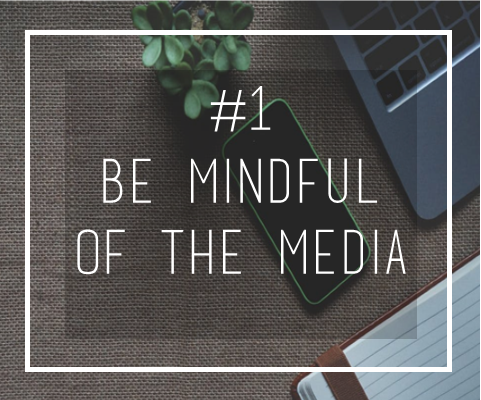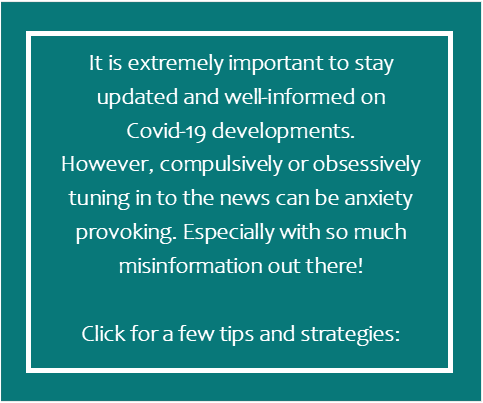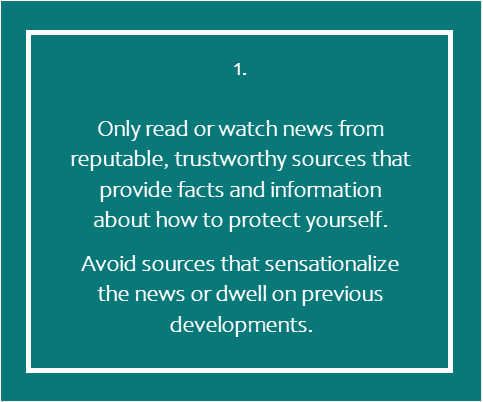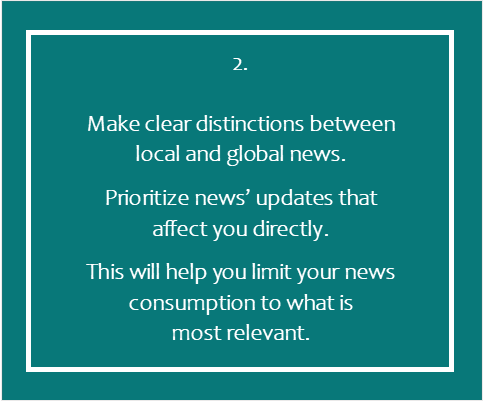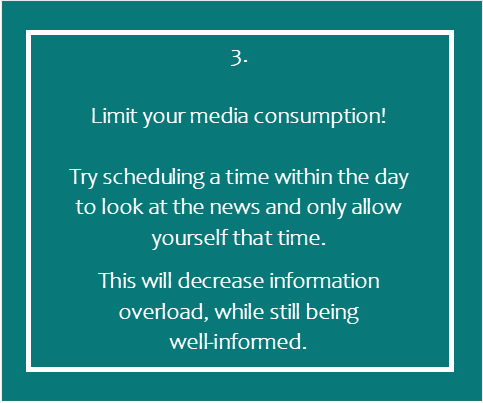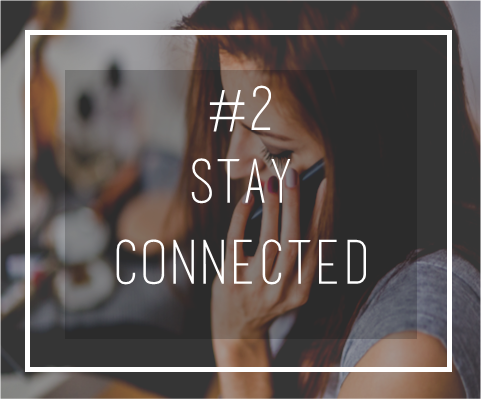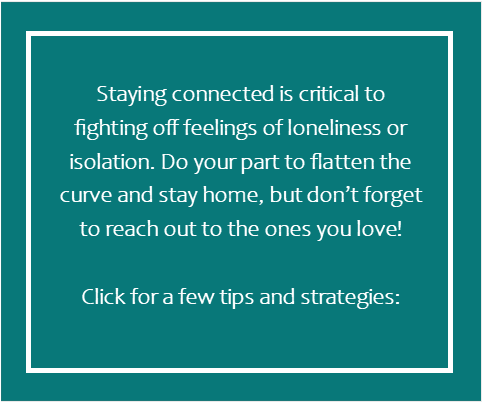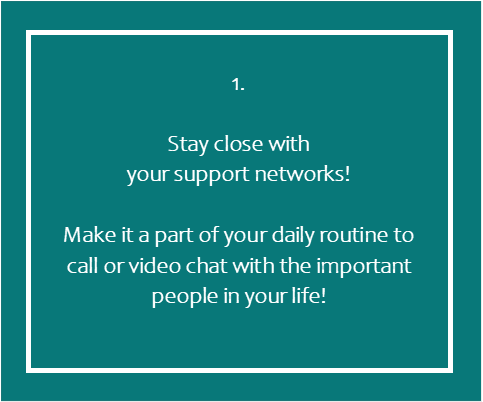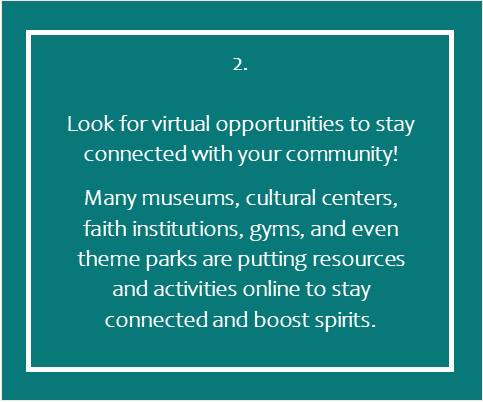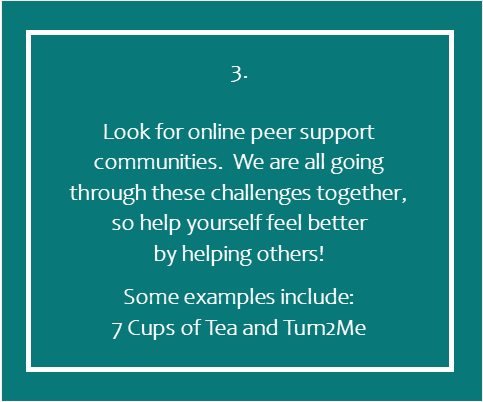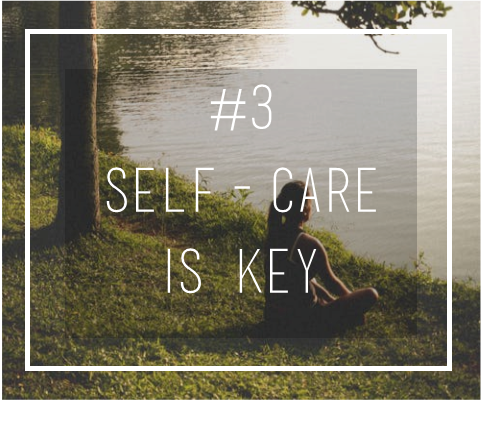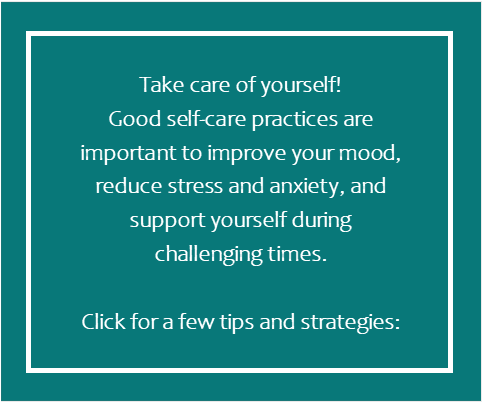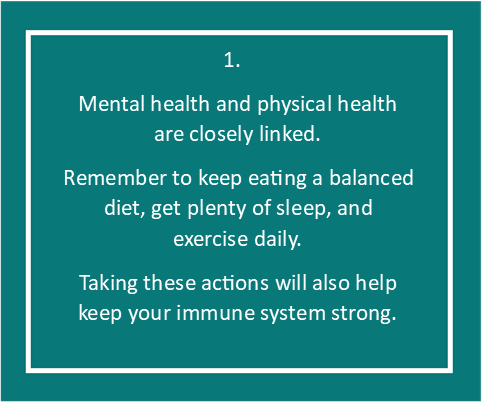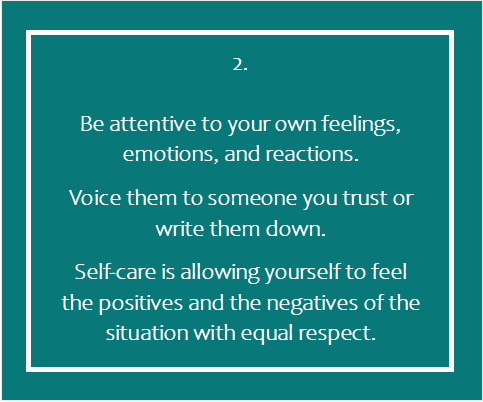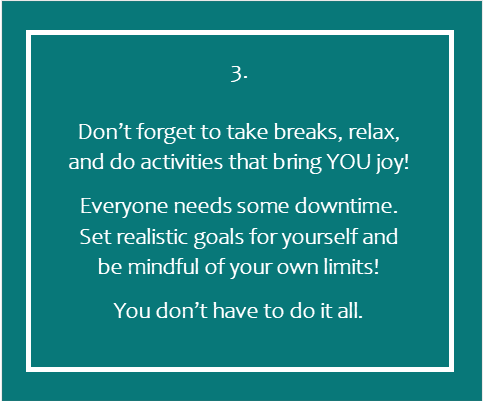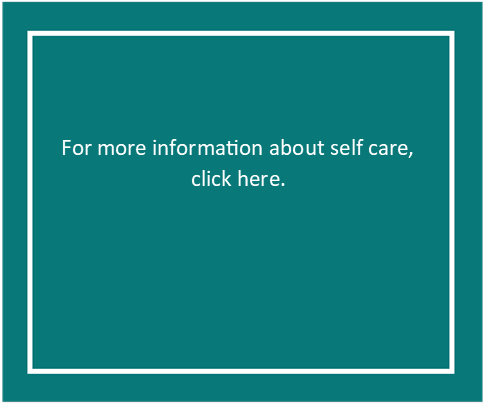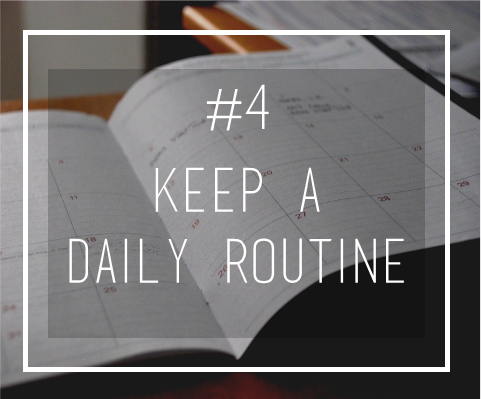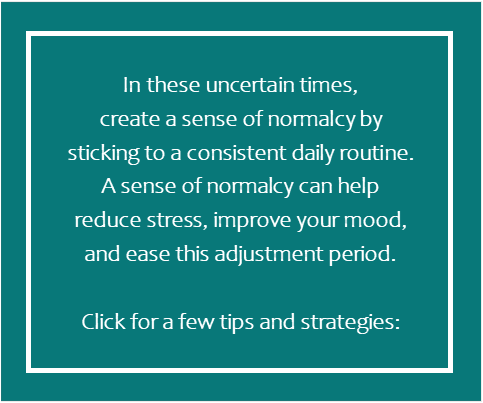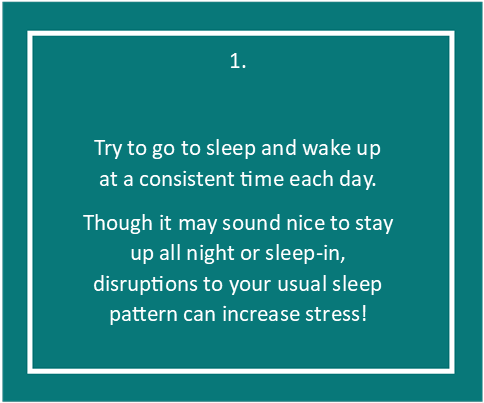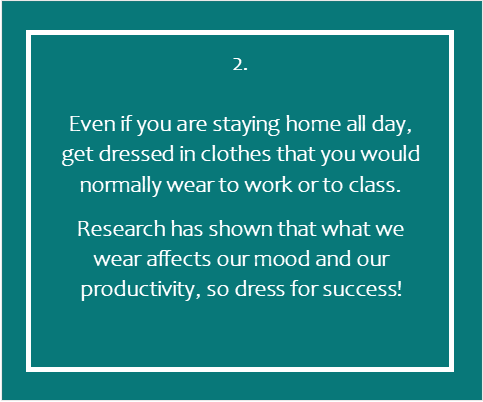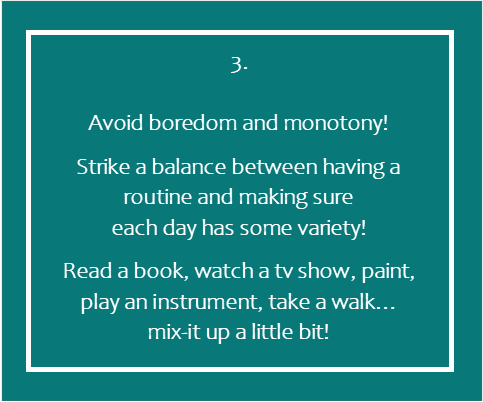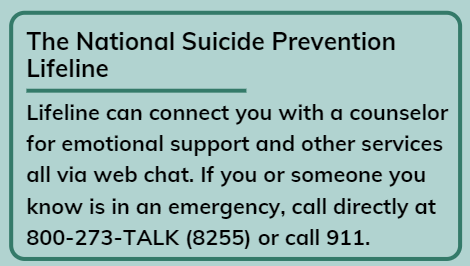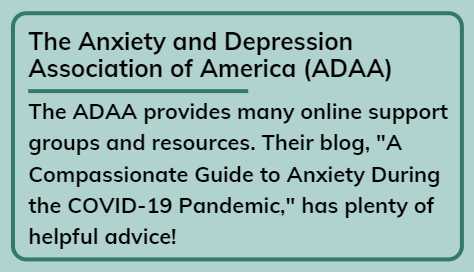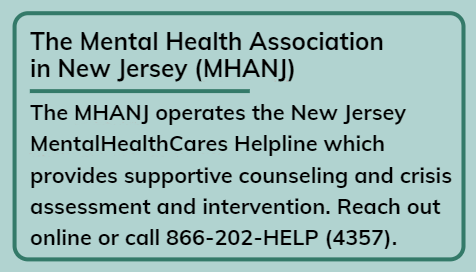How Can You Manage Stress, Anxiety, and Depression During COVID-19?
Katherine Himics, Student Curator

During the COVID-19 global pandemic, we are told how to care
for our physical health, but what about our mental health?
for our physical health, but what about our mental health?
You Are Not Alone
The COVID-19 pandemic is a rare, challenging situation causing most, if not all, peoples’ normal daily routines and behaviors to abruptly change. With all this uncertainty, it is completely normal to have feelings of fear, anxiety, stress, and sadness.
Everyone responds differently to stressful situations, but stress is a normal physiological response to an abnormal situation. Humans crave certainty. When something like a pandemic threatens our feelings of security and safety, our mental health can suffer. During challenging times like these, we may feel anxious or scared, depressed or lonely, and perhaps even helpless or overwhelmed. No matter how you’re feeling, remember we are in this together.
Anxiety and Depression
Feeling anxious or depressed may be more common than you think. According to the National Alliance on Mental Illness…
- Anxiety disorders and depression are the most common mental health concerns in the U.S.
- 19.1% of U.S. adults aged 18 and older experience a form of mental illness (anxiety disorders, depression, etc.) each year. That’s 1 in 5 adults.
- Also, many mental illness symptoms go hand-in-hand with one another. It’s common for someone with an anxiety disorder to also suffer from depression or vice versa. Nearly one-half of all individuals diagnosed with depression are also diagnosed with an anxiety disorder.
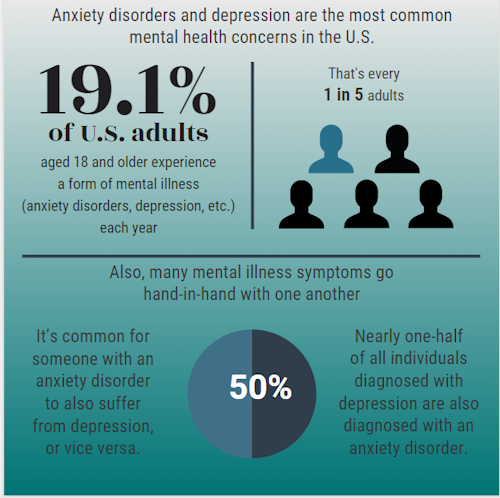
Did you know how common anxiety disorders
and depression are?
and depression are?
How Does COVID-19 Affect Mental Health?
Individuals with pre-existing mental health conditions are especially vulnerable to worsening mental health during the time of COVID-19. Disruptions to routine and increases in loneliness and isolation can trigger mental illness symptoms.
A recent YoungMinds survey reports that the COVID-19 pandemic is having a profound effect on young people with existing mental health conditions. As young people try to navigate the chaos and uncertainty, there has been a dramatic increase in anxiety, depression, and stress symptoms.
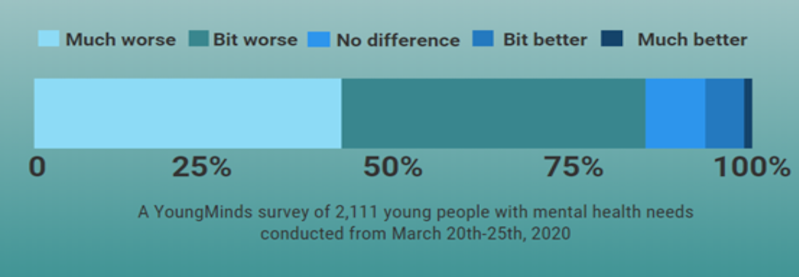
Slightly above 75% of surveyed young people believe COVID-19 has made their
mental health "much worse" or a "bit worse". Has COVID-19 affected your mental health?
mental health "much worse" or a "bit worse". Has COVID-19 affected your mental health?
What Are the Symptoms?
Stress, anxiety, and depression reactions and symptoms can vary across people and situations. During these hard times you may be feeling a variety of physical, psychological, emotional, and behavioral symptoms.

Physical
• Low appetite or gastrointestinal problems
• Low energy and fatigue
• Difficulty falling asleep or staying asleep
Psychological
• Feeling overwhelmed by life’s daily tasks
• Negative attitudes or pessimism
• Difficulty concentrating or focusing on tasks
Emotional and Behavioral
• Increased or persistent sadness
• Frequent crying
• Withdrawal from social connections
• Increased alcohol use or substance abuse
How Can I Improve My Mental Health?
If you are experiencing any symptoms of stress, anxiety, or depression, remember you are not alone. There is a lot that feels out of your control right now, so let’s focus on what you can control. Your mental health is just as important as your physical health, but prioritizing mental health can be difficult sometimes. Be patient and understanding with yourself. We are all learning how to manage the stresses of the COVID-19 pandemic together. According to the CDC and National Alliance on Mental Illness, the following four suggestions are just a few ways we can all work to improve our mental health.
Where Can I Find More Help?
There is no doubt that this is a challenging time, and you do not have to struggle with your mental health alone. If you feel that your thoughts, emotions, or behaviors are making it difficult to function day-to-day, or if your feelings persist or worsen over time, it is okay to seek professional help. A licensed mental health professional can help you manage your stress and anxiety, develop healthy coping skills, and empower you to make healthy decisions. Though physical offices and mental health support centers may be closed, a variety of virtual resources still exist such as online therapy support groups and emergency hotlines.

Where Can I Learn More?
Mental health can seem complicated or difficult to manage at times, but it is worth it to feel happy and healthy. Make a commitment to learning more about mental health! There are a lot of great resources out there that can help you learn how to identify mental illness symptoms accurately, improve your mood, and protect yourself emotionally during a crisis. The following organizations have informative websites with mental health blogs, podcasts, articles, and more to assist you on your journey towards a healthy mind!
